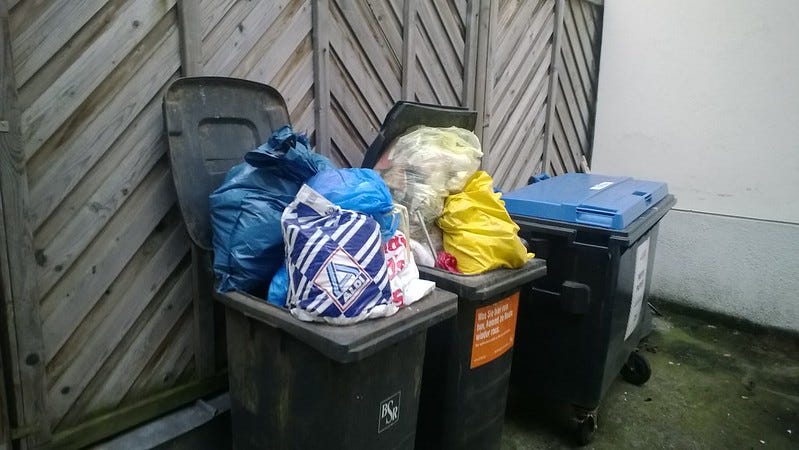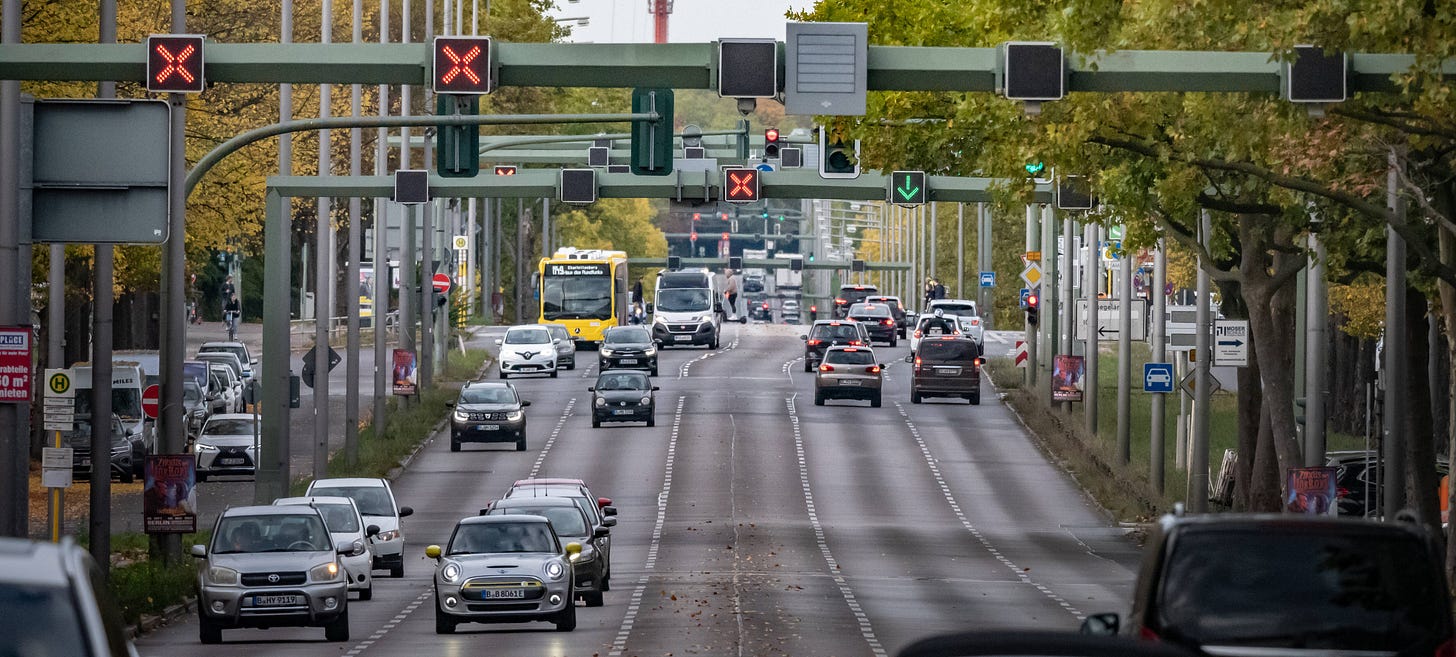#163: MEGA strike, film-like crime, lots of new Berliners
The city's most unique startup (isn't a unicorn, yet)

Dear 20 Percent,
The short version: Don’t rely on public transportation in Berlin on Monday. Work from home or dust off your bike.
The long version: Unions Verdi and EVG (a railway employee union) have called for what is being called a mega-strike, halting most rail traffic and even potentially closing some Autobahns. Deutsche Bahn has already cancelled all travel Monday and the S-Bahn in Berlin will be partially affected, according to the Morgenpost, leading to full-full S-Bahns and delays throughout Berlin’s public transport network.
The BVG, which runs our subways and buses, isn’t striking but it’s hard to imagine they won’t suffer knock-on effects. BER is also exempt from the labor action but will most definitely be affected by actions at other airports. Plan accordingly.
Verdi is entering a third round of negotiations with government employers and wants a pay increase of 10.5% or at least €500 a month for 2.5 million public employees. EVG is battling with Deutsche Bahn and others for similar increases.
But they aren’t the only strikes — BSR Friday isn’t picking up any trash as part of the same labor battle and employees at Berlin’s public hospitals are also striking Friday.
It’s like you moved to Germany but now you’re also getting to experience life in France too.
Have a good pre-strike weekend!
Andrew
We never go on strike here at 20 Percent but if you’d like to increase our wages anyway then throw us some ducats over on our Patreon or buy a 20 Percent mug (free shipping!)!
BSR already got more money from the city
You ever wonder why that discarded refrigerator stays on the street so long? Because it’s often unclear who’s responsible. Boroughs sometimes even have to make public tenders to get illegally dumped trash removed. No more: Our elected officials Thursday altered the Abfallgesetz (garbage law) so that public waste disposal company BSR can remove dumped trash — for compensation of €4.2m per year, according to RBB24.
Theblood got some money too
Perhaps Berlin’s most unique startup: Theblood wants to allow women to send in their period blood for analysis to diagnose maladies from vitamin deficiency to endometriosis. The cost: €39, if all goes as planned and the service goes online in the fall. The Kreuzberg startup has already raised €1 million, according to Business Insider, and could potentially also help women with fertility or menstruation-related issues. The blood must be collected in a diva cup and will also be made available for research to help close the gender data gap. Unique trivia from the article: Women spend an average of seven years menstruating during their lifetimes.
Crooks failed in trying to get money
Straight out of a mafia movie: Last week two men were injured during a shootout on Dahlmanstraße near the Charlottenburg S-Bahn station. The shooting began with demands for protection money, according to Tagesspiegel. Then Tuesday one of the suspects in that case was arrested after allegedly beating a man in Schwäbisch Hall in southern Germany before kidnapping him and transporting him 500km to a house in Brandenburg (the leafy state surrounding Berlin). There was then a demand for ransom. A witness in southern Germany reported the kidnapping and about 100 cops eventually freed the man, who had been severely injured. At least three of the four people found in the house in Schönwalde-Glien northwest of Berlin now face charges. Cops have said very little about the events because they say it’s under investigation, and probably already the basis for a new script.
Charlottenburg giving out money for streets

Heerstraße between Gatower Straße and Wilhelmstraße will be renovated this summer, leading to a full closure of the street from August 4 to 7, Tagesspiegel reported. The street is probably of little significance to most readers but it’s a huge commuting artery that connects Berlin with Spandau and Potsdam. The closure will be an issue for at least a few readers. The street is also unique because the number of lanes in each direction change depending on the time of day (traffic lights determine which lanes move in which direction).
Factoid
Berlin continues to inch — or should we say centimeter? — toward its all-time residential record after the ranks of Berliners rose by 76,000 last year, primarily because of refugees from Ukraine. The Hauptstadt now has 3,850,809 residents, according to the Berlin-Brandenburg statistics office. The jump is dramatic — in 2021 just 10,892 people moved here. The statistics behind the statistics are also curious — 43,206 of the new residents are Ukrainian while 7,749 are Indian, the second-largest group of immigrants (up from 4,558 the year before). Russians take third place with 5,884 (up from 1,351 previously). Berlin was most full in 1945 when it had 4.3 million residents but that honestly makes absolutely no sense.


Well I hope that was a innocent mistake…according to the link provided Berlin had 4.3m at 1939 not 1945…
Probably it was the best place to be for aid in 1945? With all the train lines destroyed and a lot of damage, maybe everyone just camped here waiting for rebuilding or hoping for work?